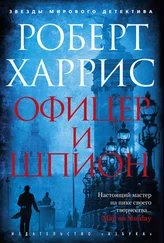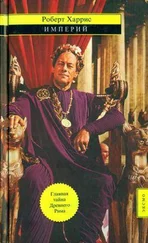‘Yes — and the English are equally determined to avoid one, more’s the pity.’
‘There.’ She pulled the last page out of her typewriter. ‘Go.’
The corridor was still empty. He walked back briskly the way he had come and had just reached the top of the last flight of steps leading down to the lobby when he noticed a figure in a black SS uniform heading across the marble floor towards him. Sturmbannführer Sauer of Ribbentrop’s private office had his head down and for an instant Hartmann considered turning round but then Sauer glanced up and recognised him. He frowned in surprise.
‘Hartmann...?’ He was about the same age, with a blank face from which most of the colour seemed to have been drained — white-blond hair, pale skin, pale blue eyes.
For want of a better response, Hartmann flung out his arm. ‘ Heil Hitler! ’
Sauer responded automatically. ‘ Heil Hitler! ’ But then he peered at him. ‘Aren’t you supposed to be at the British Embassy?’
‘I’m on my way now.’ Hartmann descended the last few steps and hurried towards the main entrance.
Sauer shouted after him, ‘For God’s sake, Hartmann, get a move on! The future of the Reich is at stake—’
Hartmann was already in the street and striding away from the building. He had a premonition of Sauer running up behind him — challenging him, drawing his pistol, ordering him to turn out his pockets, discovering his notebook. But then he told himself to calm down. He was a Third Secretary in the English Department, responsible among other duties for translation. For him to have a copy of an official letter to the British Prime Minister — a letter that would, in any case, be in London in less than an hour — was hardly treason. He could talk his way out of it. He could talk his way out of almost anything.
He climbed the five deeply worn stone steps to the entrance of the British Embassy. The interior of the large portico was lit by a single gloomy lamp. The iron doors were locked. He rang the bell and heard it chime somewhere in the building. The sound died away. Such silence! Across the road, even the Adlon, the most fashionable of all Berlin’s great hotels, was quiet. It was as if the entire city had gone to ground. Eventually he heard bolts being drawn back and a lock turning. A young man poked his head around the door.
Hartmann said, in English, ‘I have an urgent message from the Reich Chancellery which I must give either to the Ambassador or the First Secretary in person.’
‘Of course. We’ve been expecting you.’
Hartmann followed him inside and up a second flight of steps to an imposing reception hall, two storeys high, with an oval glass roof. It had been built in the last century by a famous railway tycoon who had gone bankrupt soon afterwards. The air of opulent bad taste was all-pervasive. Not one but two grand staircases with porcelain balustrades rose and curled around the opposing walls and met in the middle. Nimbly descending the left-hand flight, sideways-on, like Fred Astaire, was a tall, slim, dandyish figure in a dinner jacket with a red carnation in his buttonhole. He was smoking a cigarette in a jade holder.
‘Good evening — Herr Hartmann, is it?’
‘Good evening, Your Excellency. Yes, it is. I have the Führer’s reply to the Prime Minister.’
‘Wonderful.’
The British Ambassador took the envelope, quickly pulled out the three typewritten pages and started reading them where he stood. His eyes flickered rapidly back and forth. His elongated face with its drooping moustache, already melancholy in repose, seemed to grow even longer. He grunted under his breath. When he had finished he sighed, clamped his cigarette holder back between his teeth and gazed at the skylight. His cigarette smoke was fragrant, Turkish.
Hartmann said, ‘The State Secretary wanted you to take particular note of the last sentence, Sir Nevile. He said to tell you it hadn’t been easy.’
Henderson looked again at the last page. ‘Not much of a straw to clutch at, but I suppose it’s something.’ He gave the letter to his young aide. ‘Translate it and telegraph it to London immediately, will you, please? No need for cipher.’
He insisted on showing Hartmann to the door. His manners were as exquisite as his clothes. He was rumoured to be a lover of Prince Paul of Yugoslavia. He had once turned up at the Chancellery wearing a crimson pullover under his pale grey suit: Hitler was said to have gone on about it for days afterwards. What were the British thinking of, Hartmann wondered, sending such a man to deal with the Nazis?
At the door he shook Hartmann’s hand. ‘Tell Baron von Weizsäcker I appreciate his efforts.’ He stared along Wilhelmstrasse. ‘Extraordinary to think we may be out of here by the end of the week. I can’t say I shall be entirely sorry.’
He took a final draw of his cigarette, then pinched it delicately between his thumb and forefinger, extracted it from his holder and flicked it away to disintegrate on the pavement in a cascade of orange sparks.
The Legats lived in a small rented terraced house in North Street, Westminster, that had been found for them by Legat’s then-superior in the Foreign Office Central Department, Ralph Wigram, who lived with his wife and son at the top of the same road. Its advantage was its proximity to the office: Wigram expected his juniors to work hard and Legat could be at his desk within ten minutes of leaving his front door. Its disadvantages were almost too numerous to list and stemmed chiefly from the fact that it was more than two hundred years old. Apart from the installation of electricity little seemed to have been done to it in all that time. The Thames was barely a hundred yards away; the water table was high. Dampness rose from the ground to meet the rain that trickled from the roof. Furniture had to be artfully arranged to hide the patches of blackish-green mould. The kitchen was pre-war. And yet Pamela loved it. Lady Colefax lived in the same street and in the summer held candlelit dinner parties on the pavement to which the Legats were invited. It was absurd: he only earned £300 a year. Although they had been obliged to sublet the basement to help pay the rent, they still maintained a precarious access to the tiny garden by means of a rickety set of steps from the drawing-room window; Legat had improvised a makeshift lift using a rope and laundry basket to lower the children to play.
It was to this once-romantic but now essentially impracticable domestic arrangement — symbolic, Legat had come to think, of the general state of his marriage — that he found himself hurrying less than an hour after the Prime Minister had finished his broadcast, in order to pack an overnight bag.
His path took him, as it always did, past the Wigrams’ house at the top of the street. Most of the flat-fronted houses were blackened by soot, their facades brightened by the occasional window box full of geraniums. Number 4, however, looked blind and abandoned. Behind the small Georgian windowpanes, the white-panelled shutters had been closed for months. He wished suddenly, with a longing that was almost palpable, that Wigram might still be inside. For it was Wigram, more than anyone, who had predicted this crisis — obsessively predicted it, if the truth were told, so that even Legat, who had loved him, had thought him half-mad on the subject of Hitler. He could call him to mind in an instant — the urgent blue eyes, the fair moustache, the thin taut mouth. But even more than the visual memory, he could hear him, limping along the corridor towards the Third Secretaries’ room — first one heavy footstep and then the sound of his left leg being dragged along behind it, his stick tapping out a warning of his approach — and always the same subject on his lips: Hitler, Hitler, Hitler. When the Germans had reoccupied the Rhineland in 1936, Wigram had asked to see the Prime Minister, Stanley Baldwin, and had warned him that in his opinion this was the Allies’ last chance to stop the Nazis. The PM had replied that if there was only one chance in a hundred that an ultimatum might lead to war, he could not risk it: the country would not stand for another conflict so soon after the last one. Wigram had come home to North Street in despair and had broken down in front of his wife: ‘Wait now for bombs on this little house.’ Nine months later, he had been found dead in his bathroom aged forty-six — whether by his own hand or by some complication of the polio that had crippled him for the past decade, nobody seemed to know.
Читать дальше












